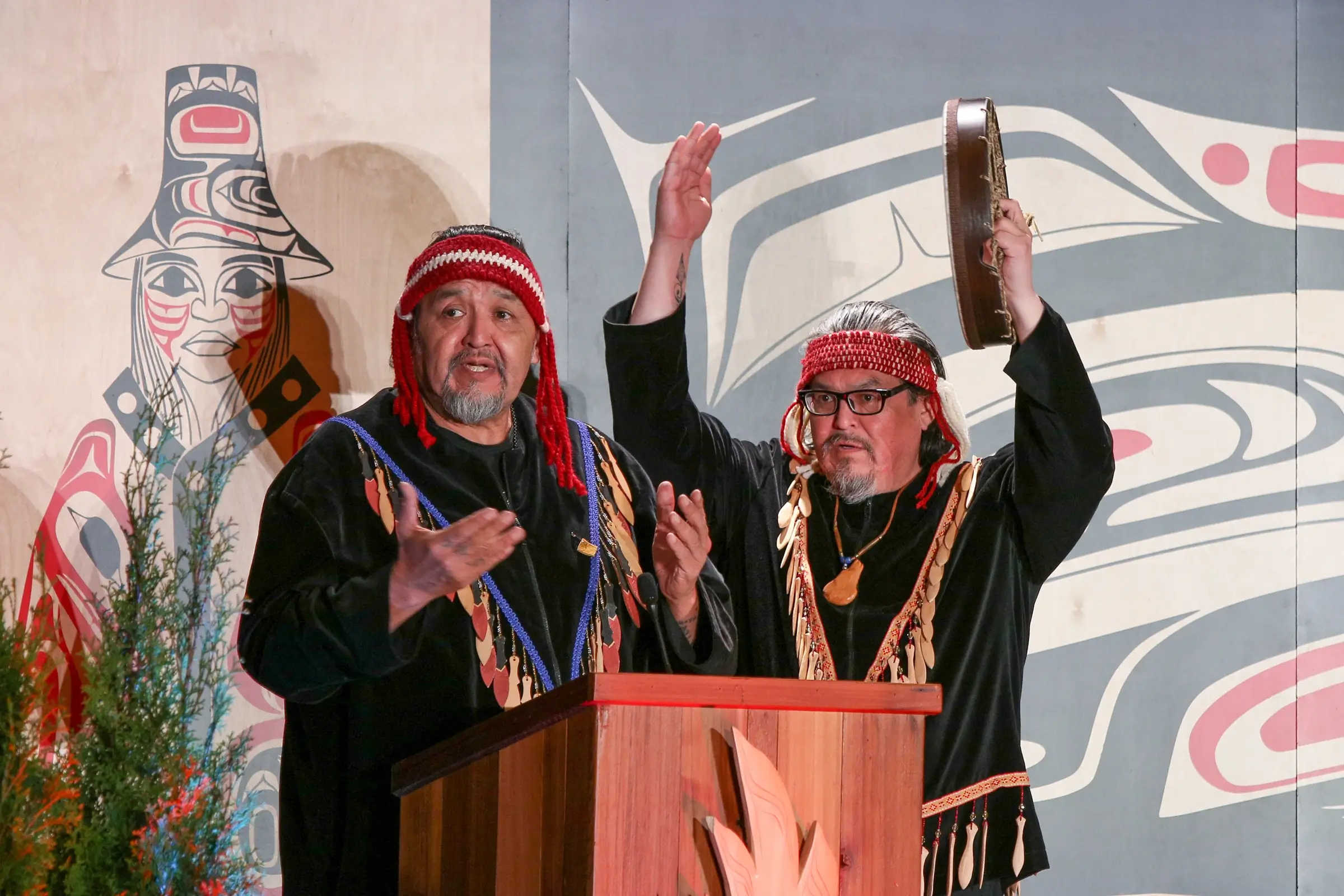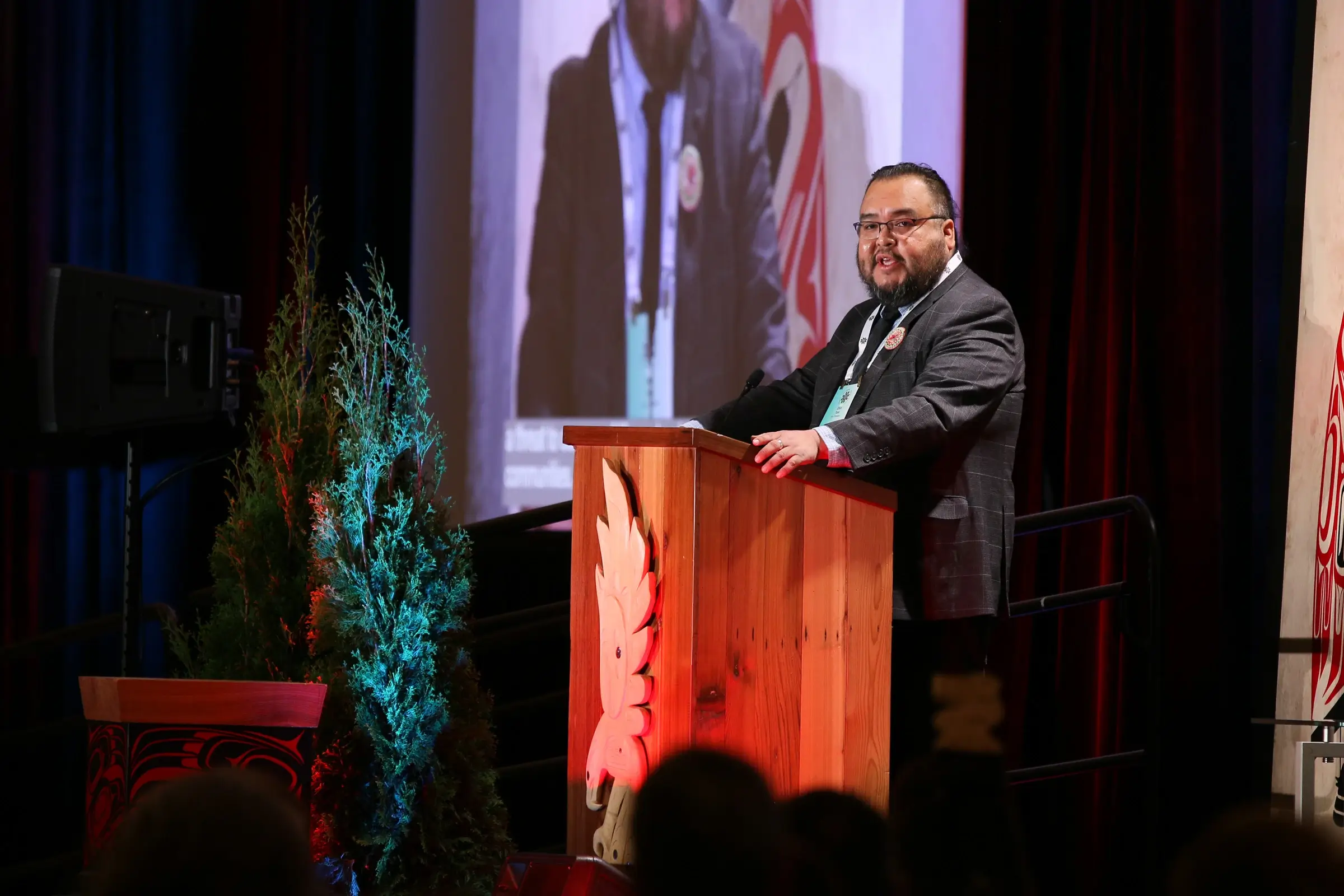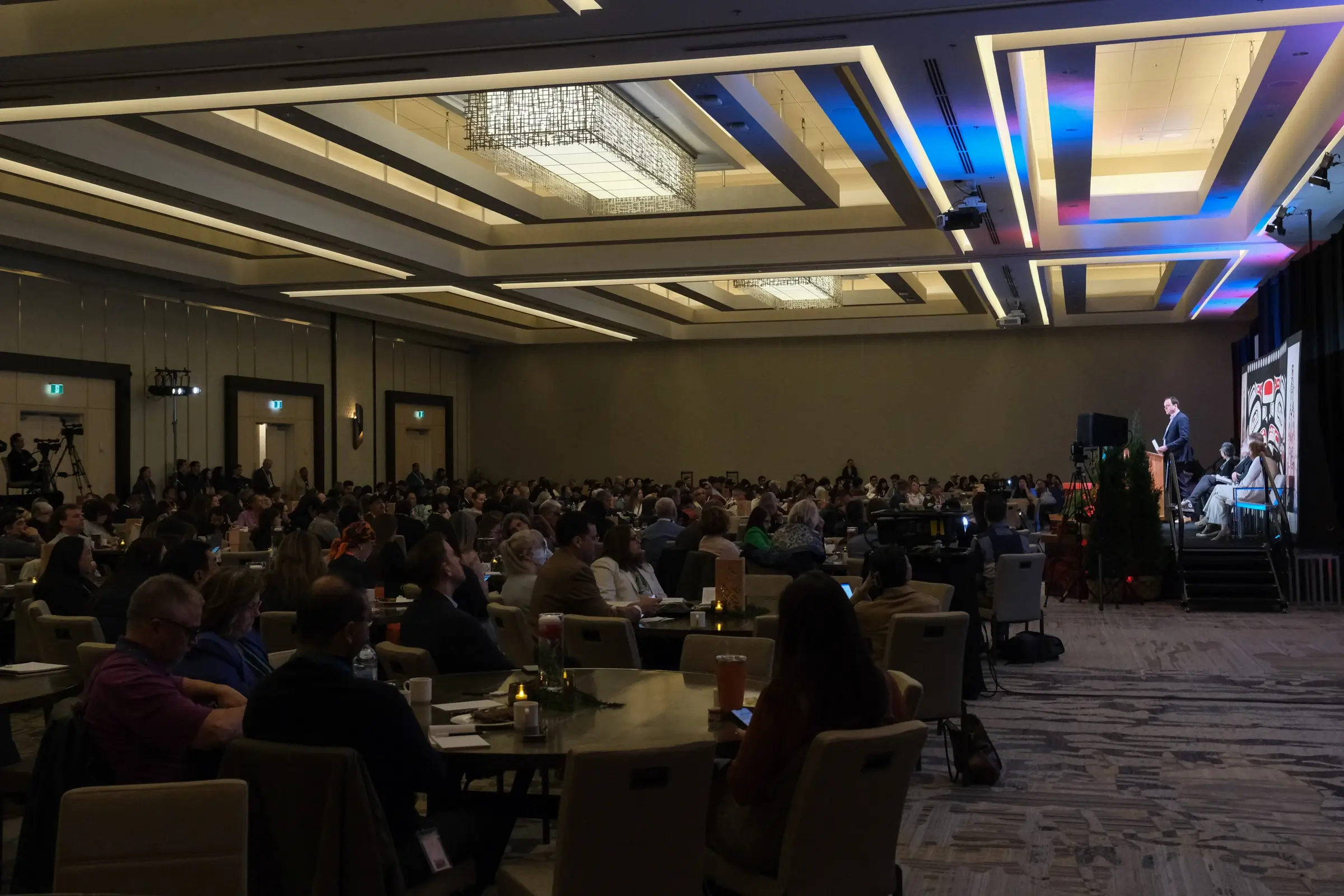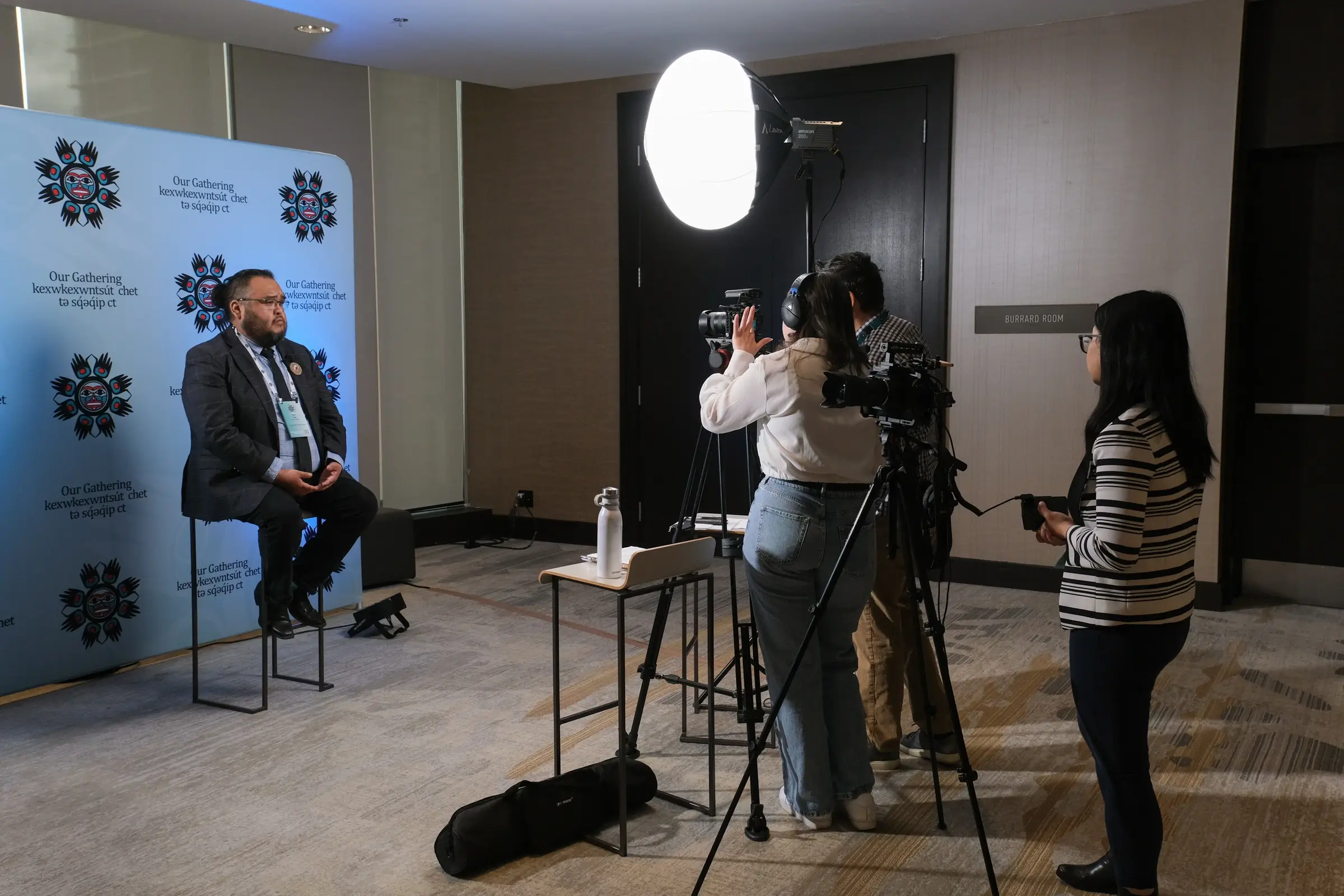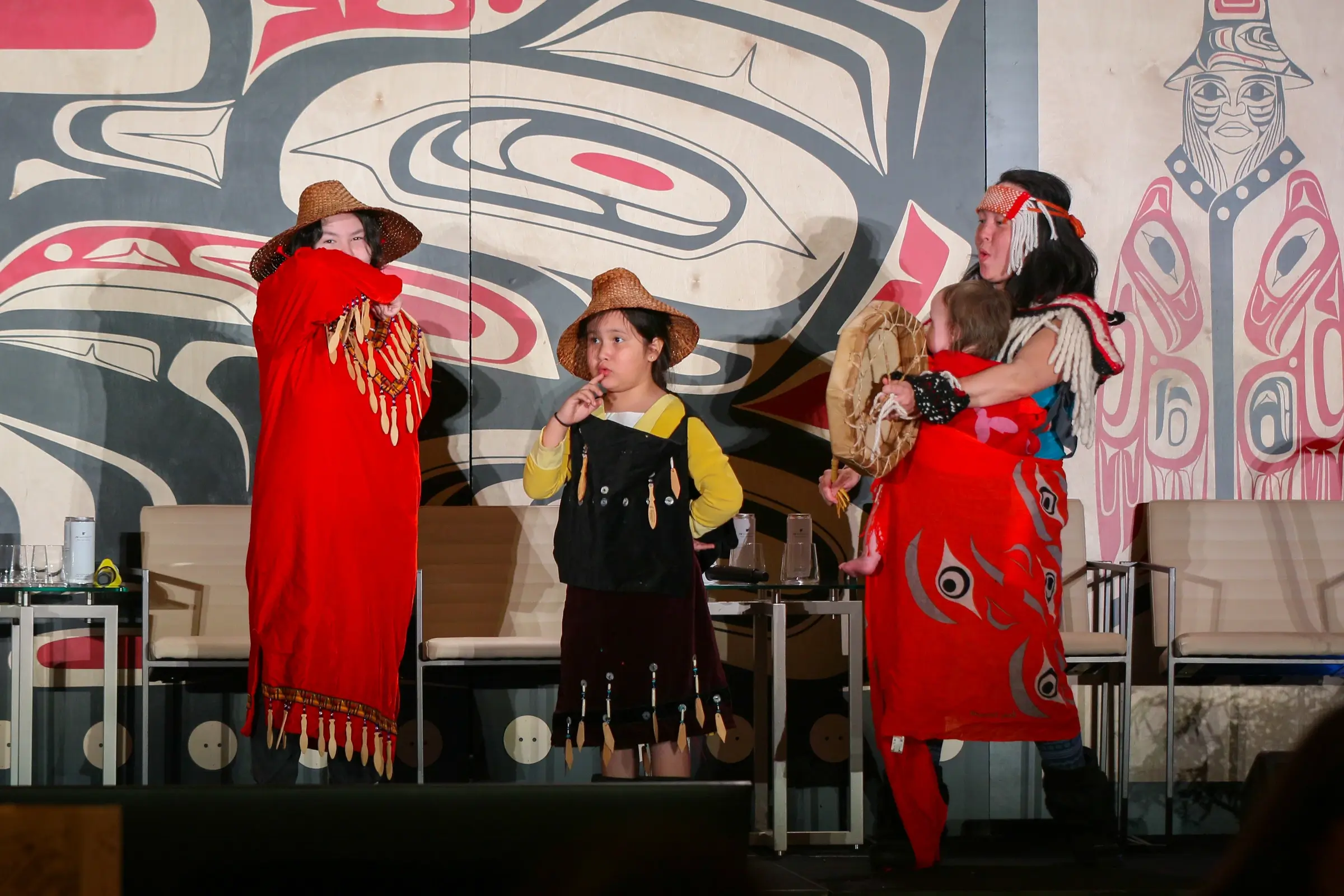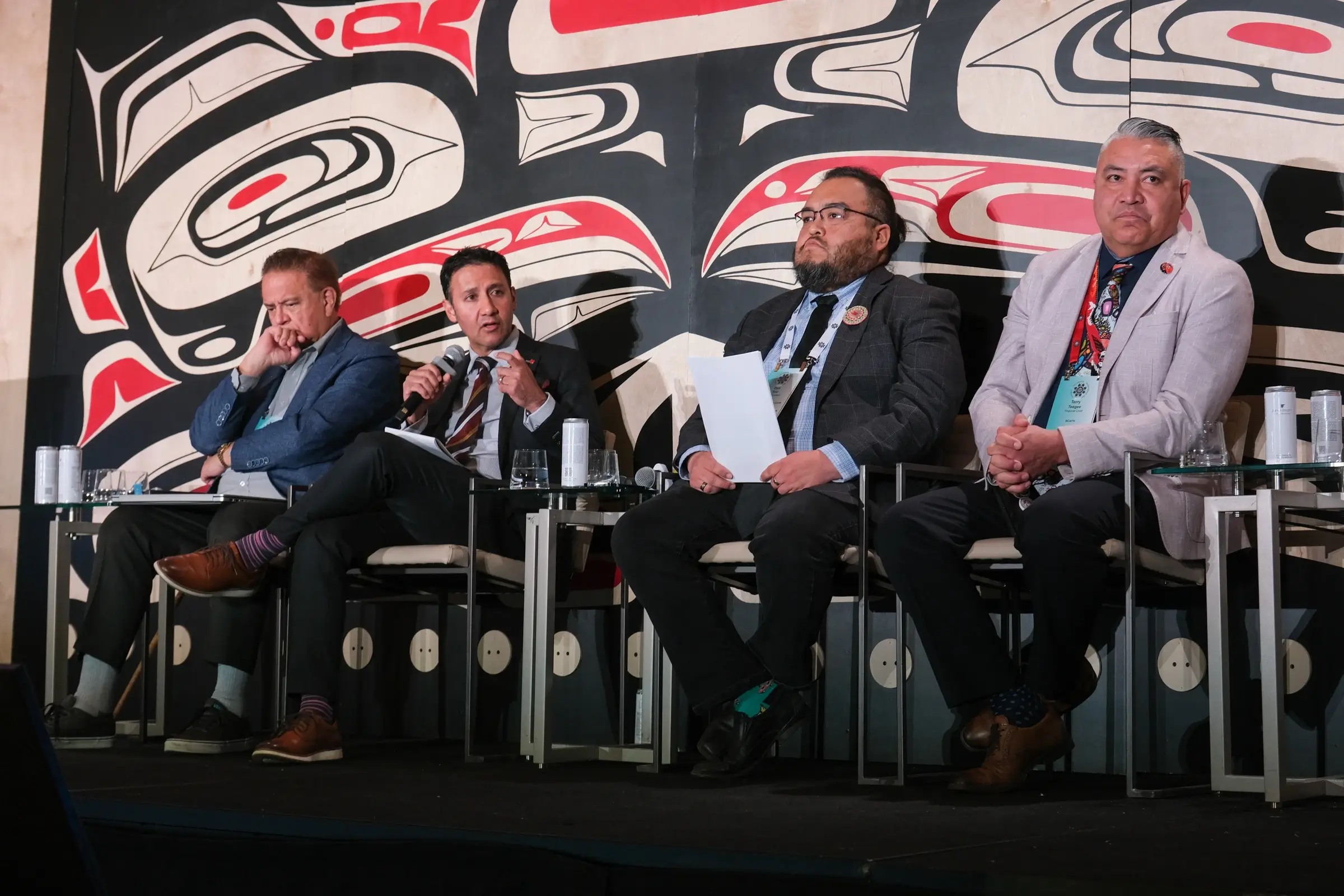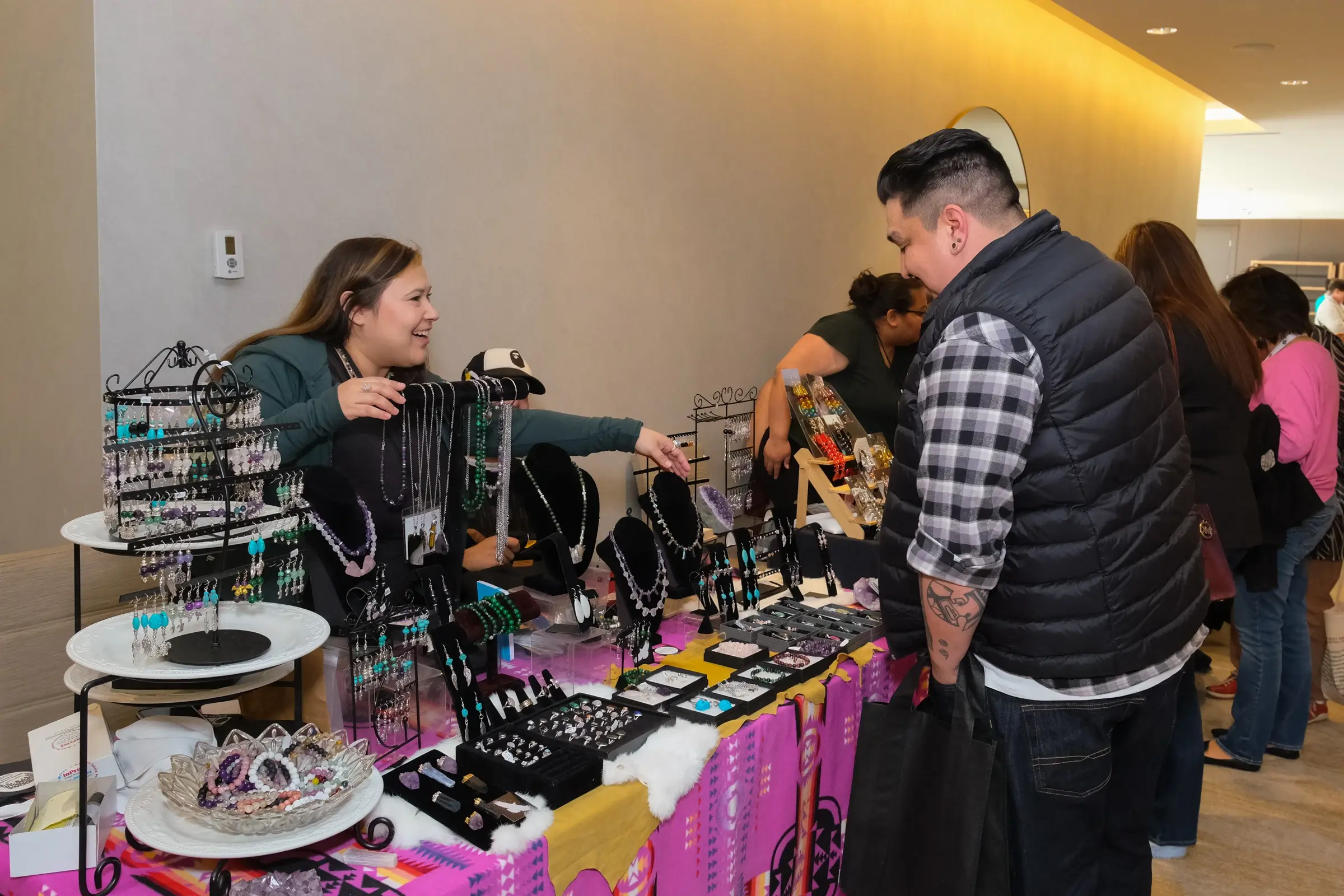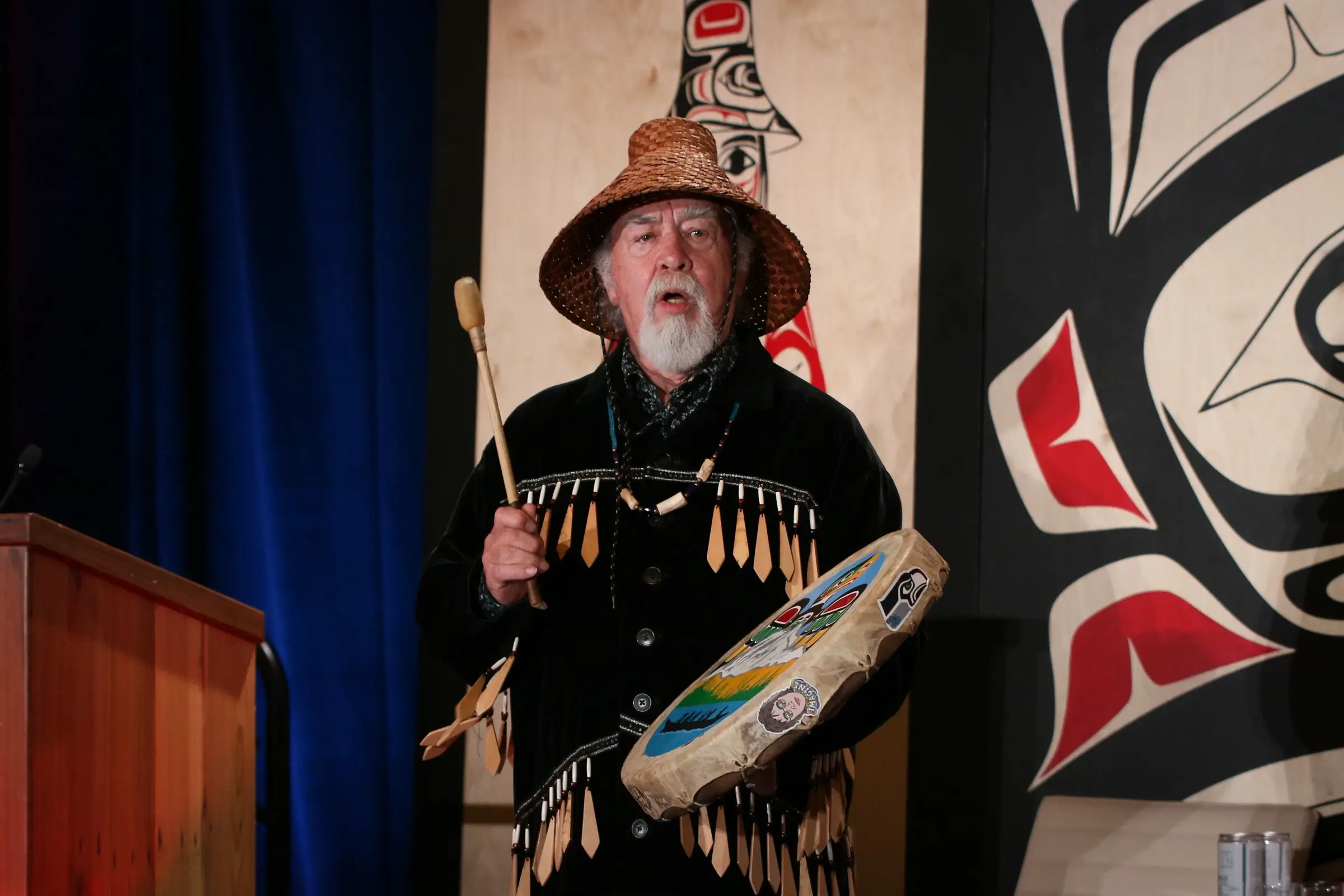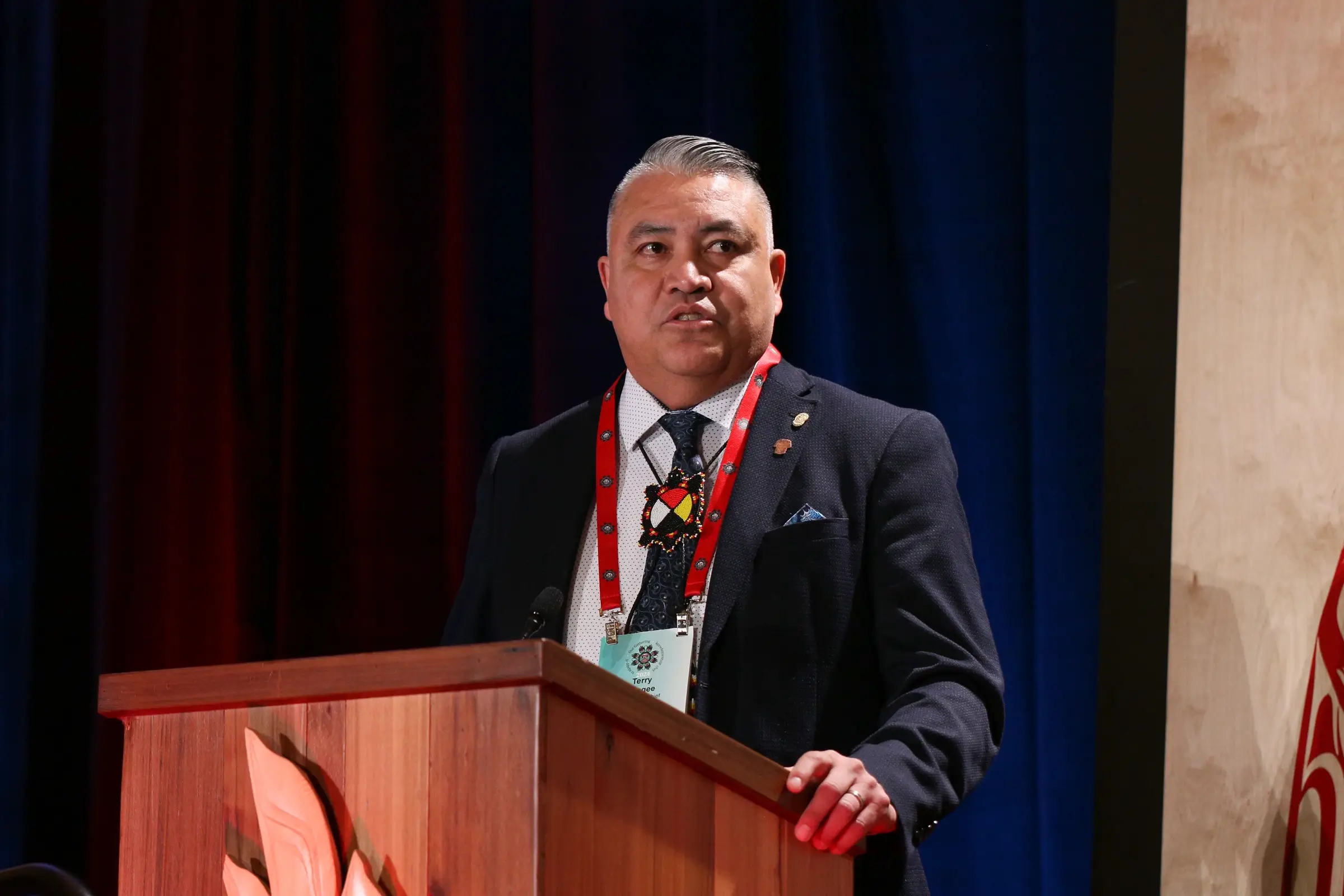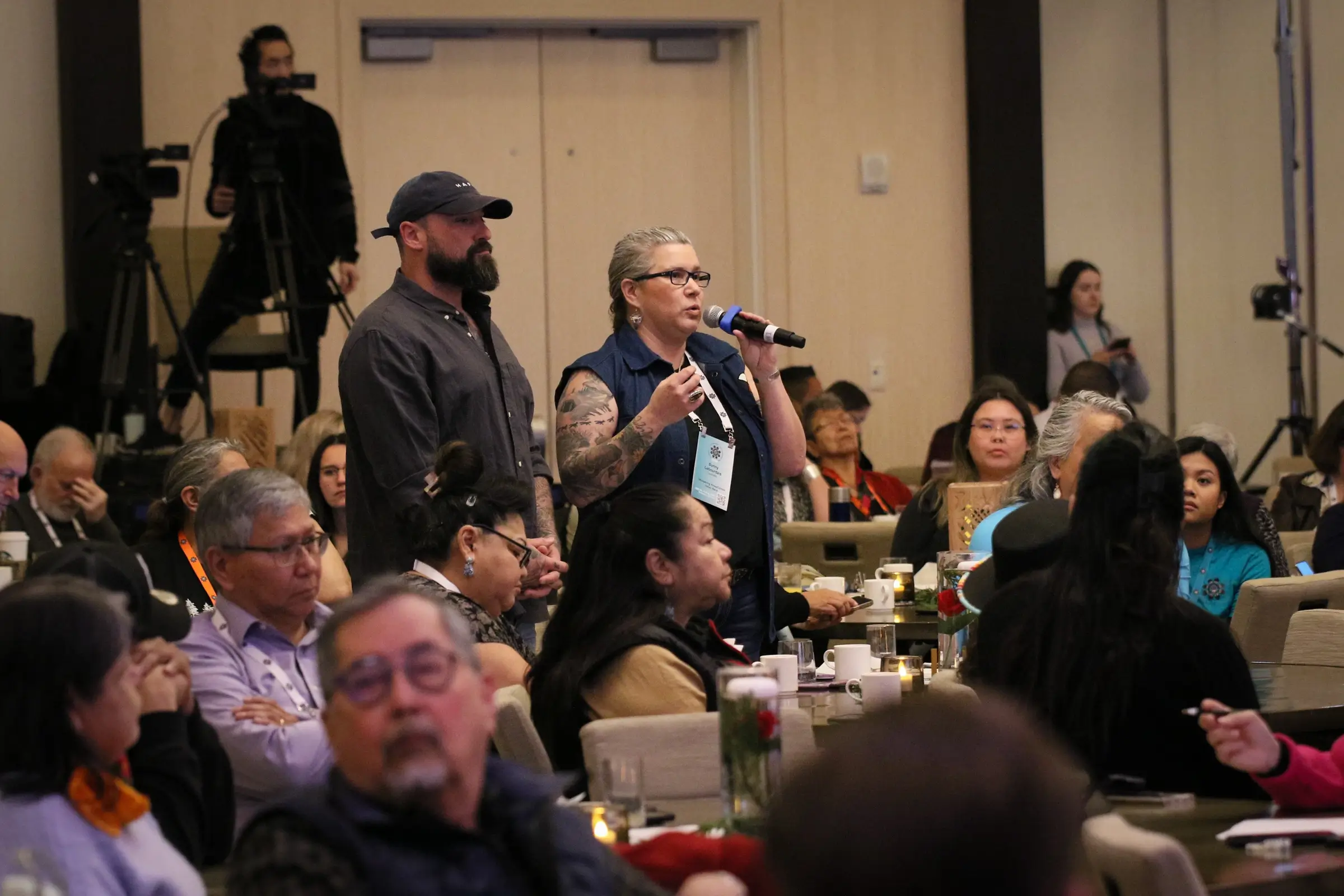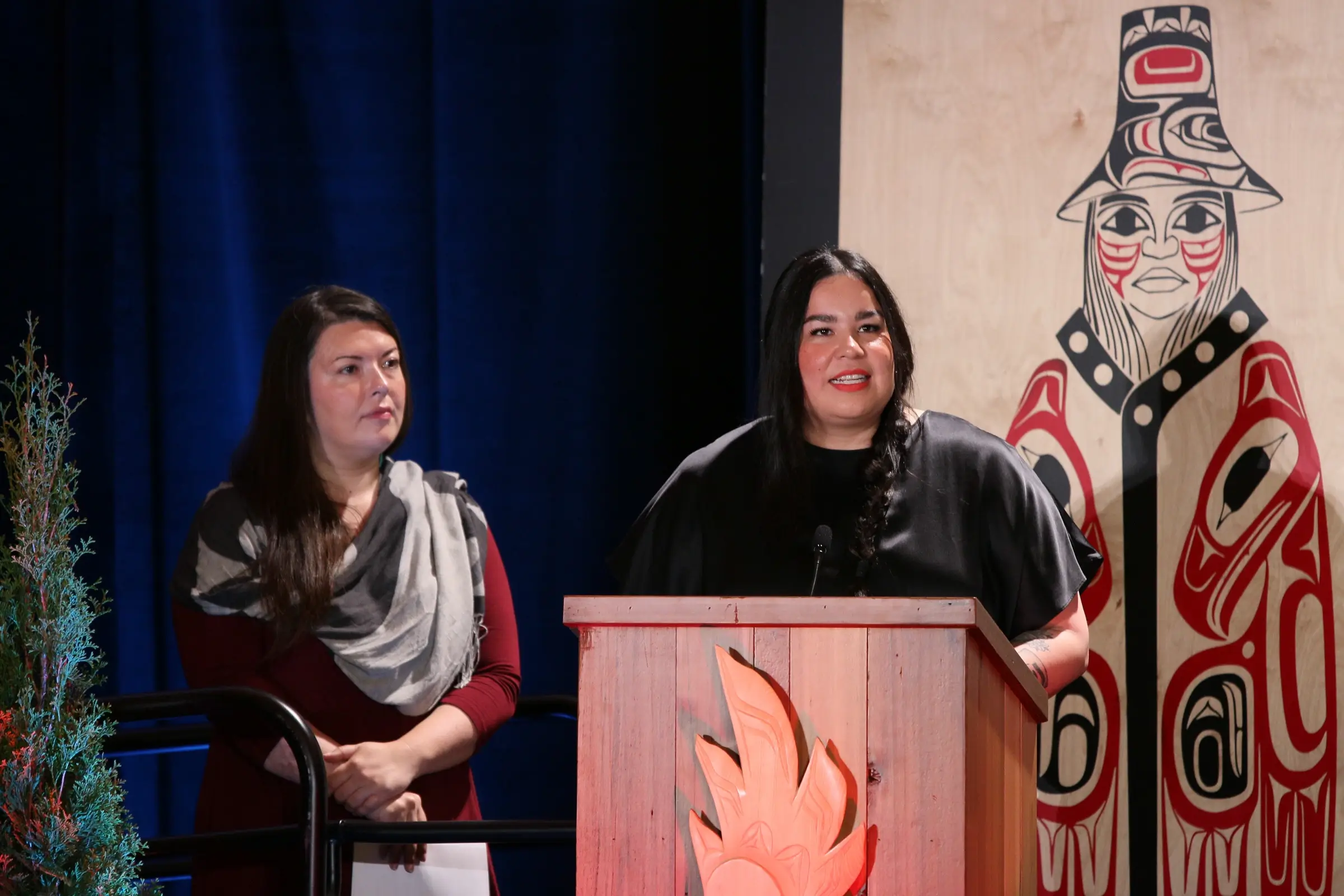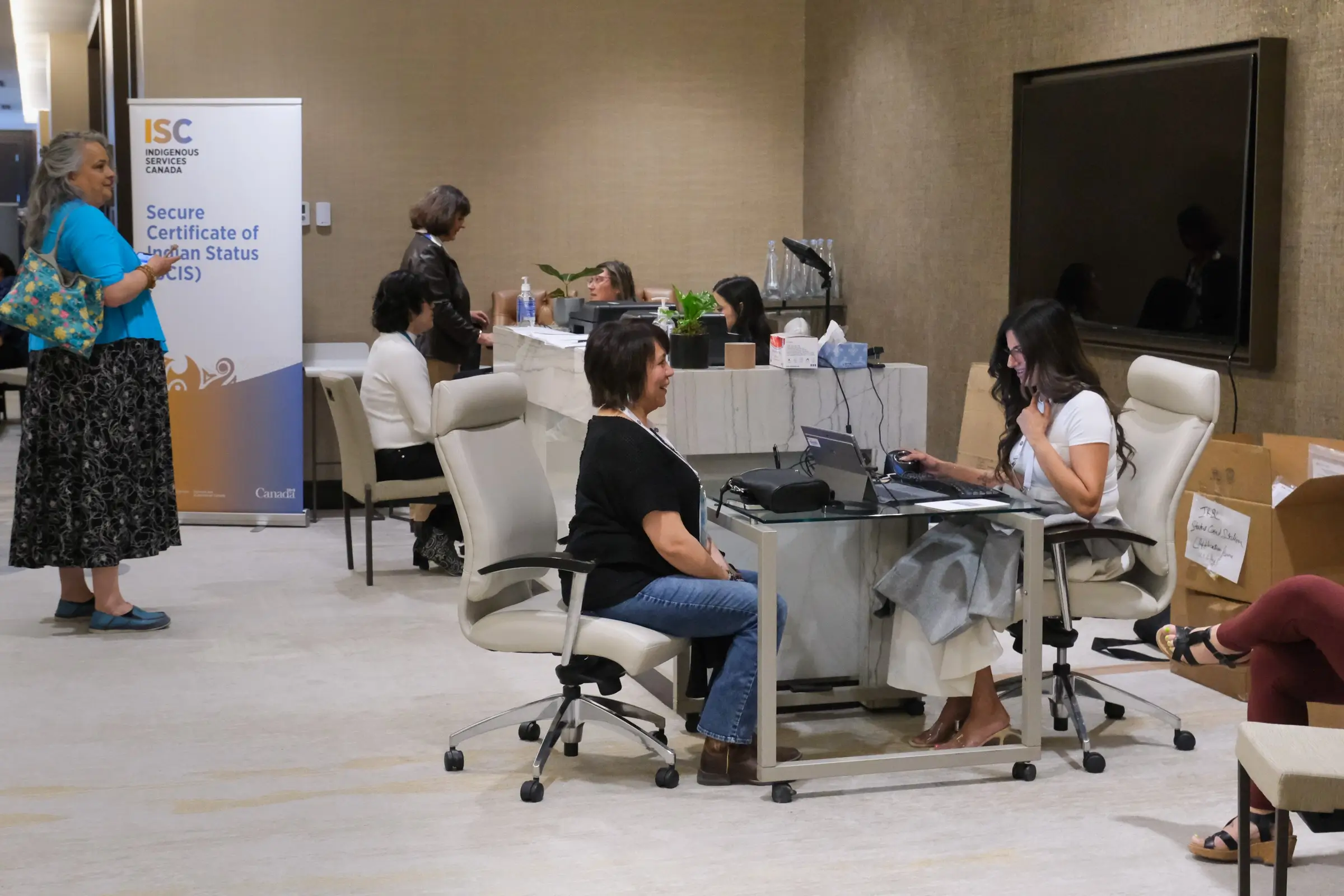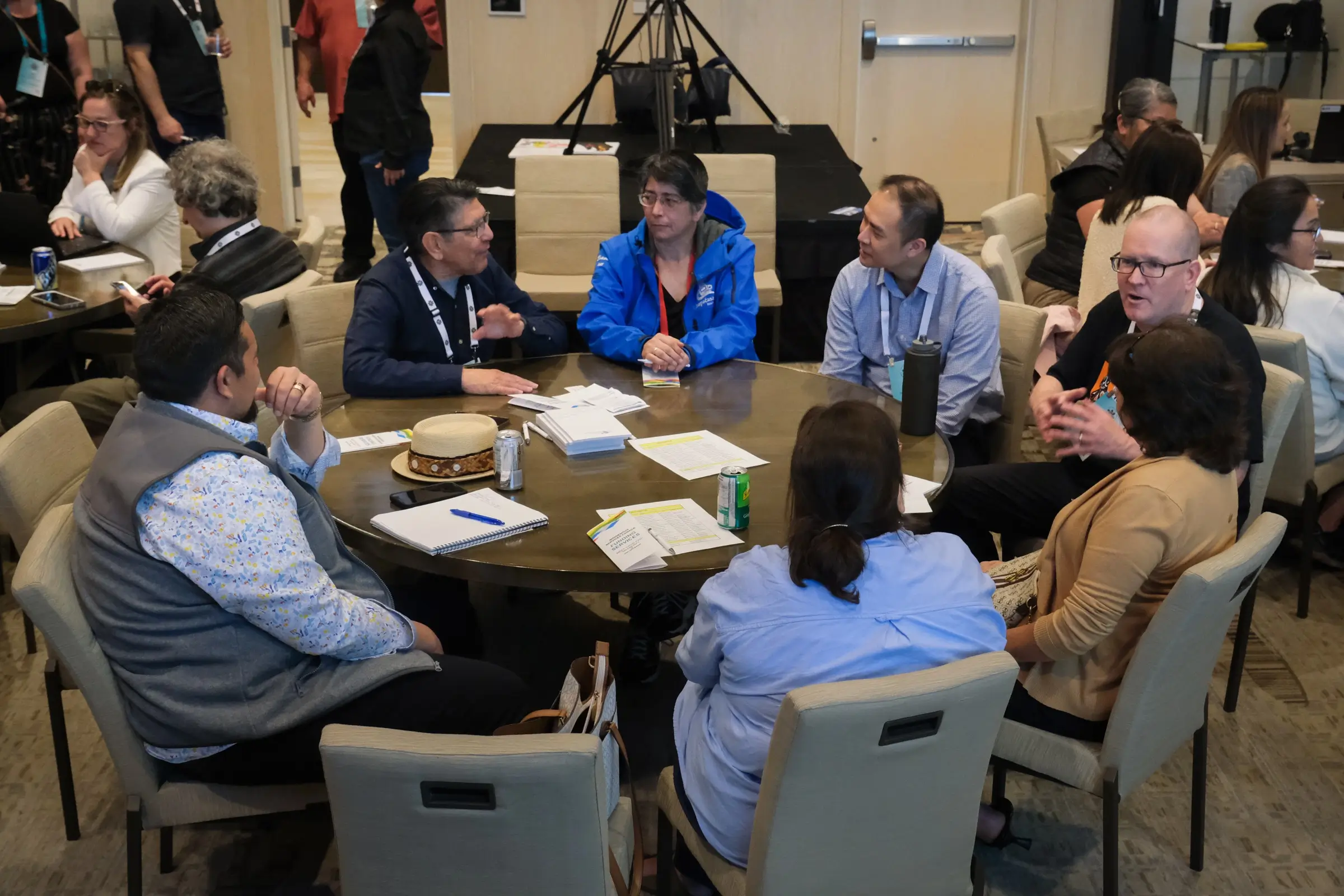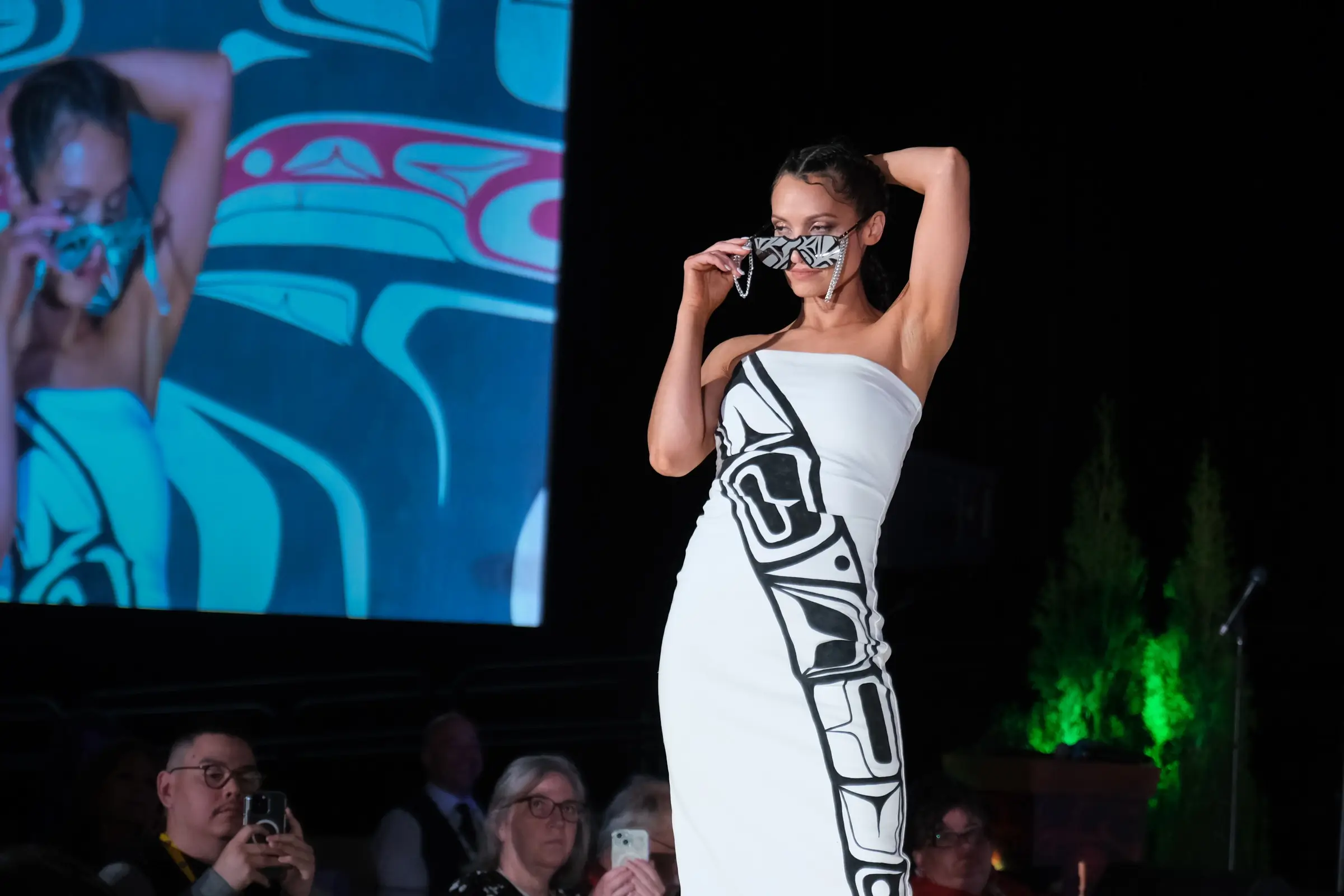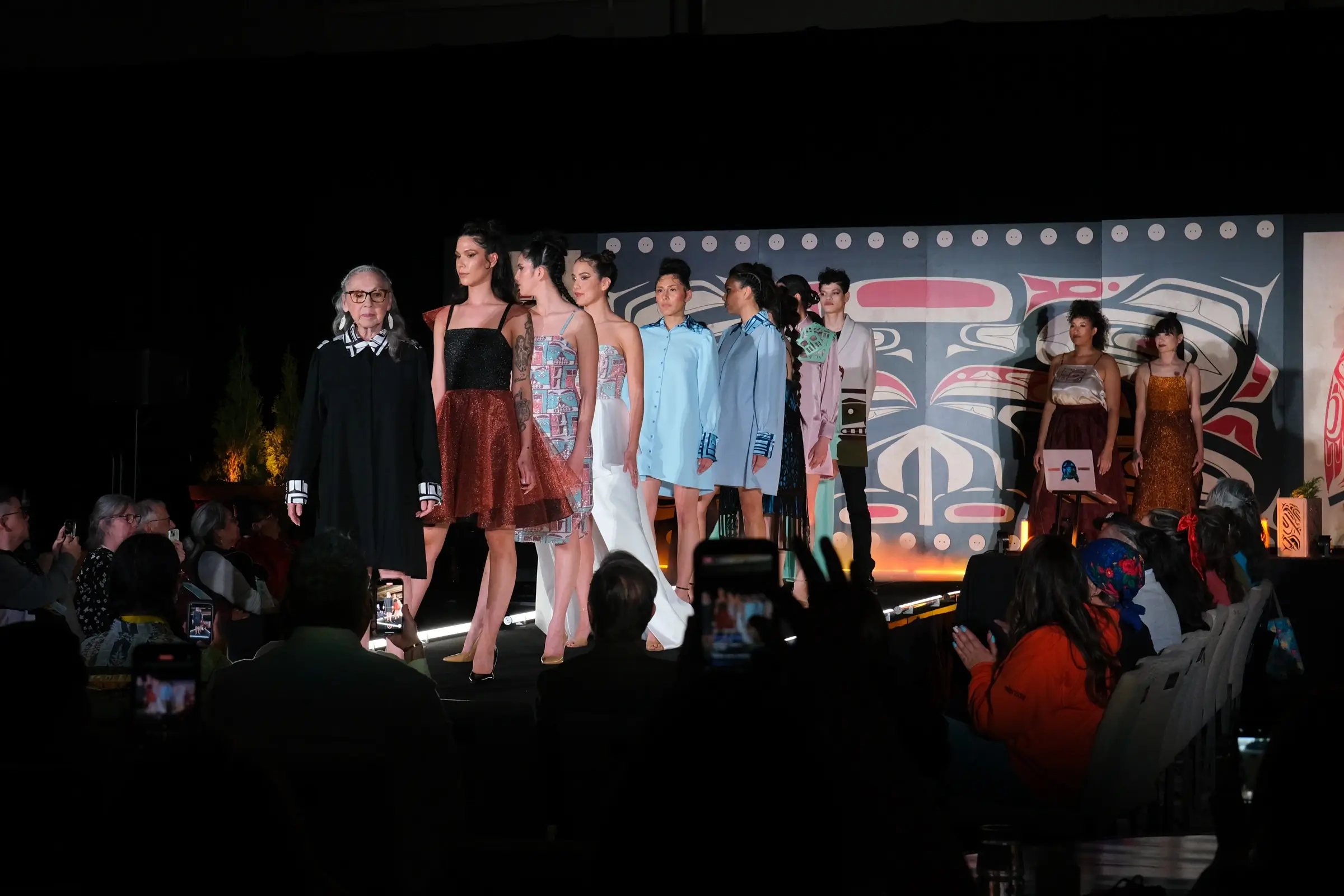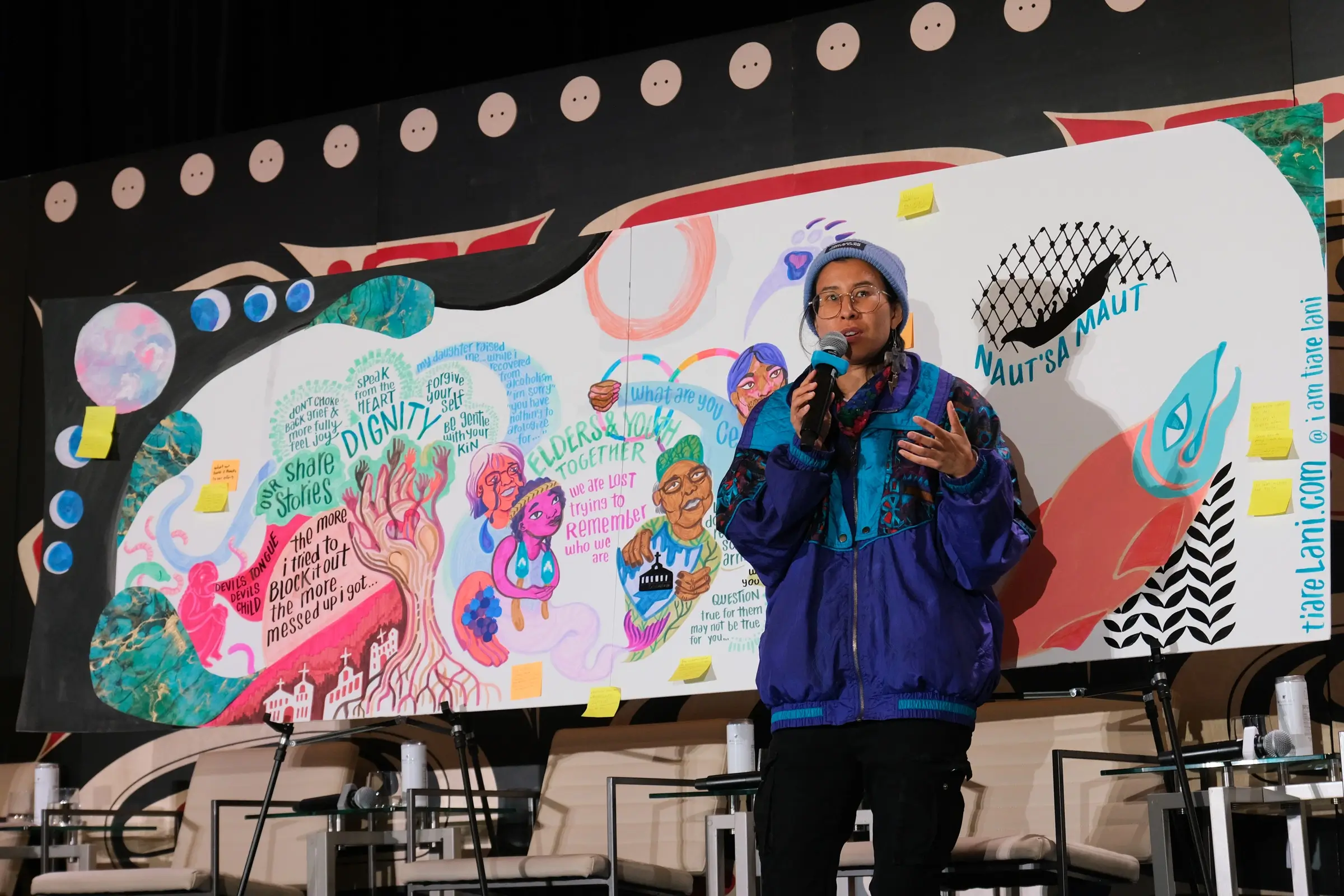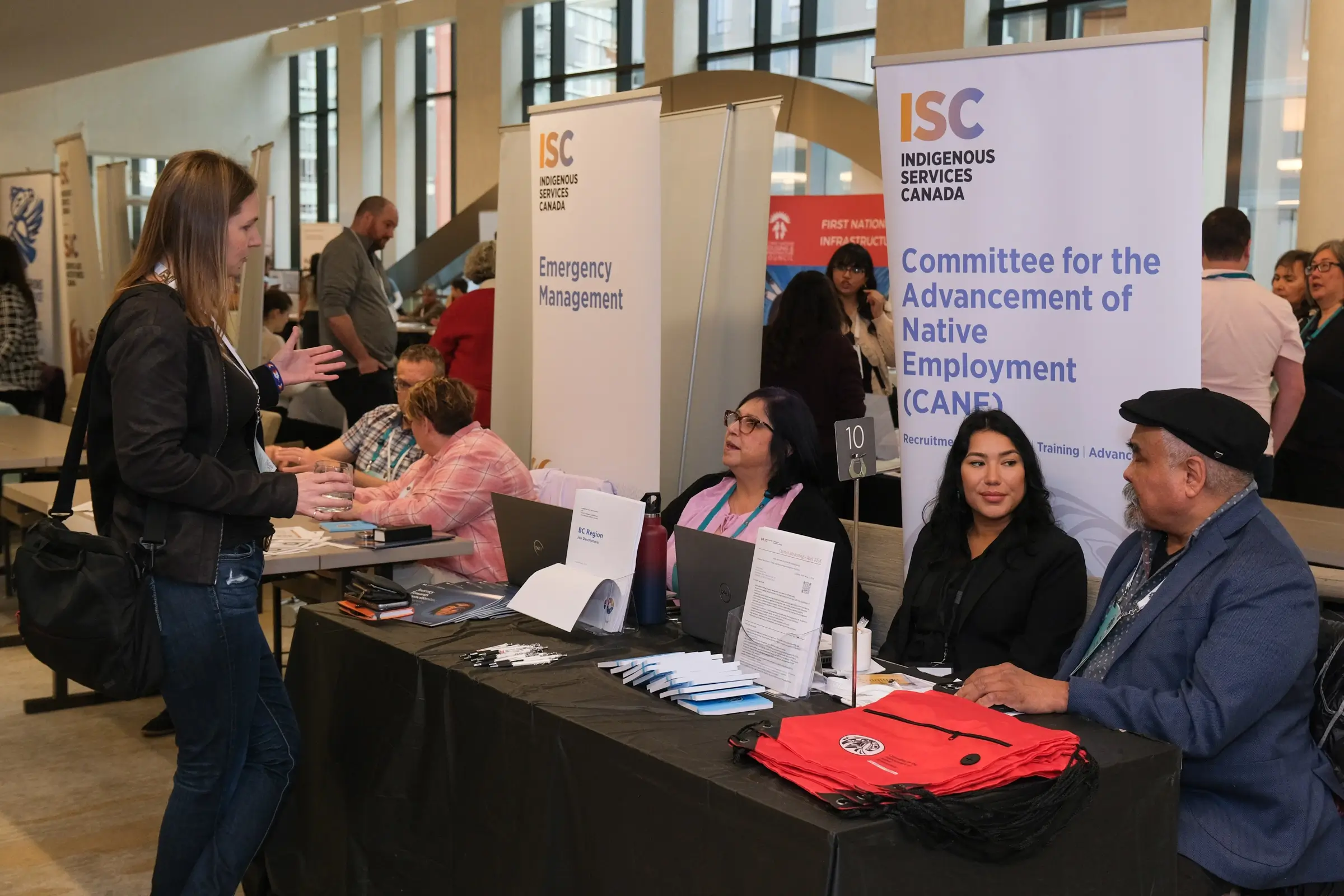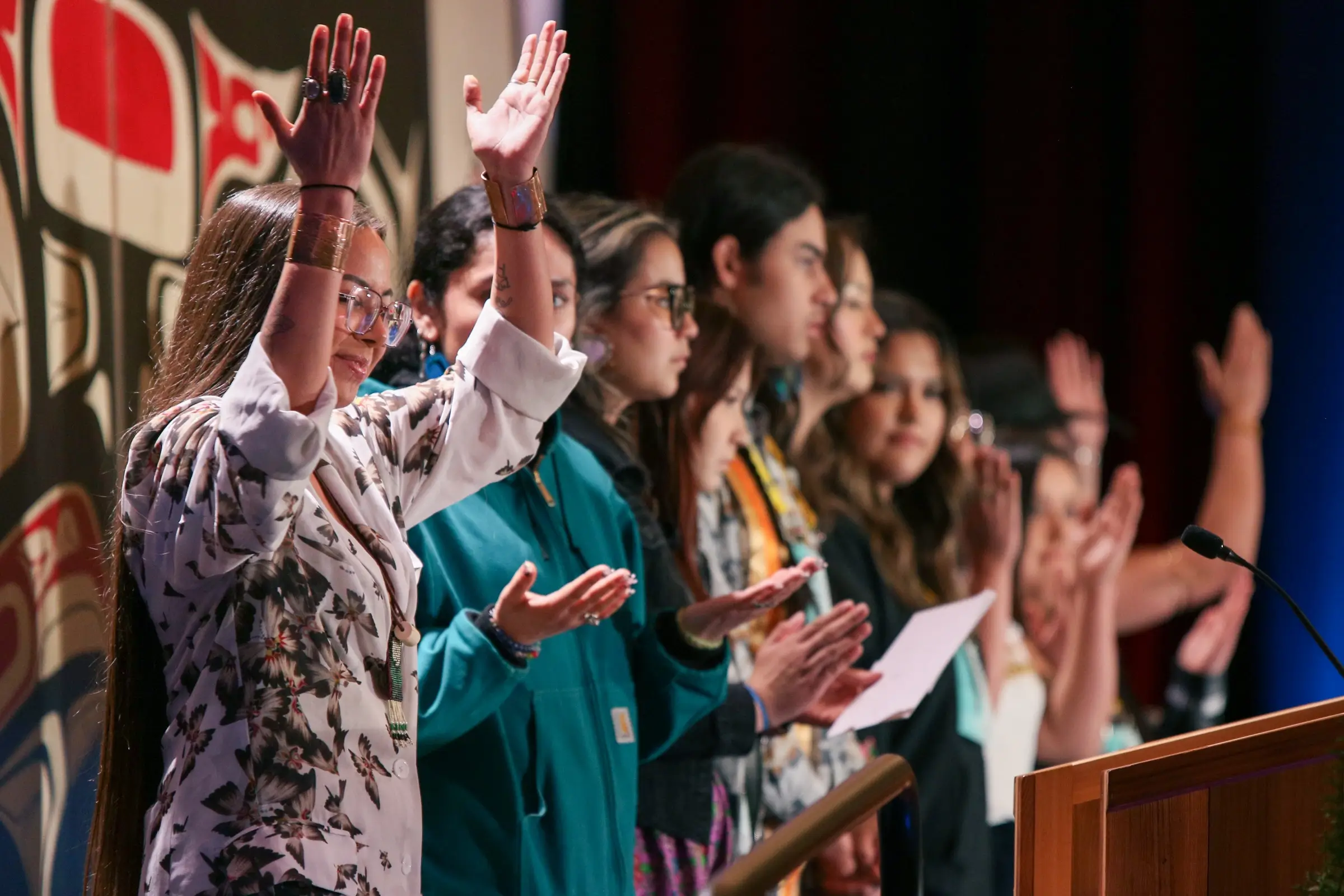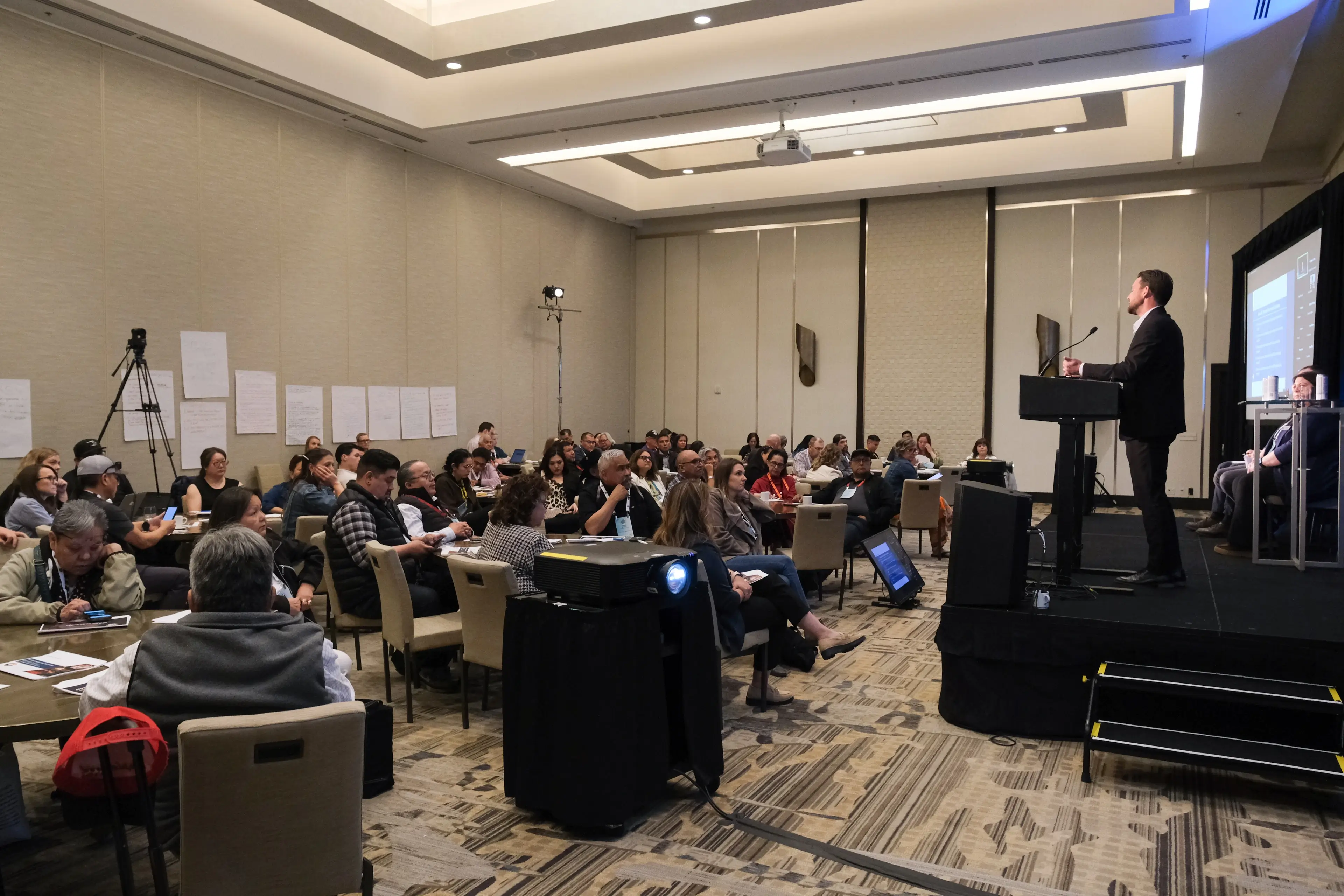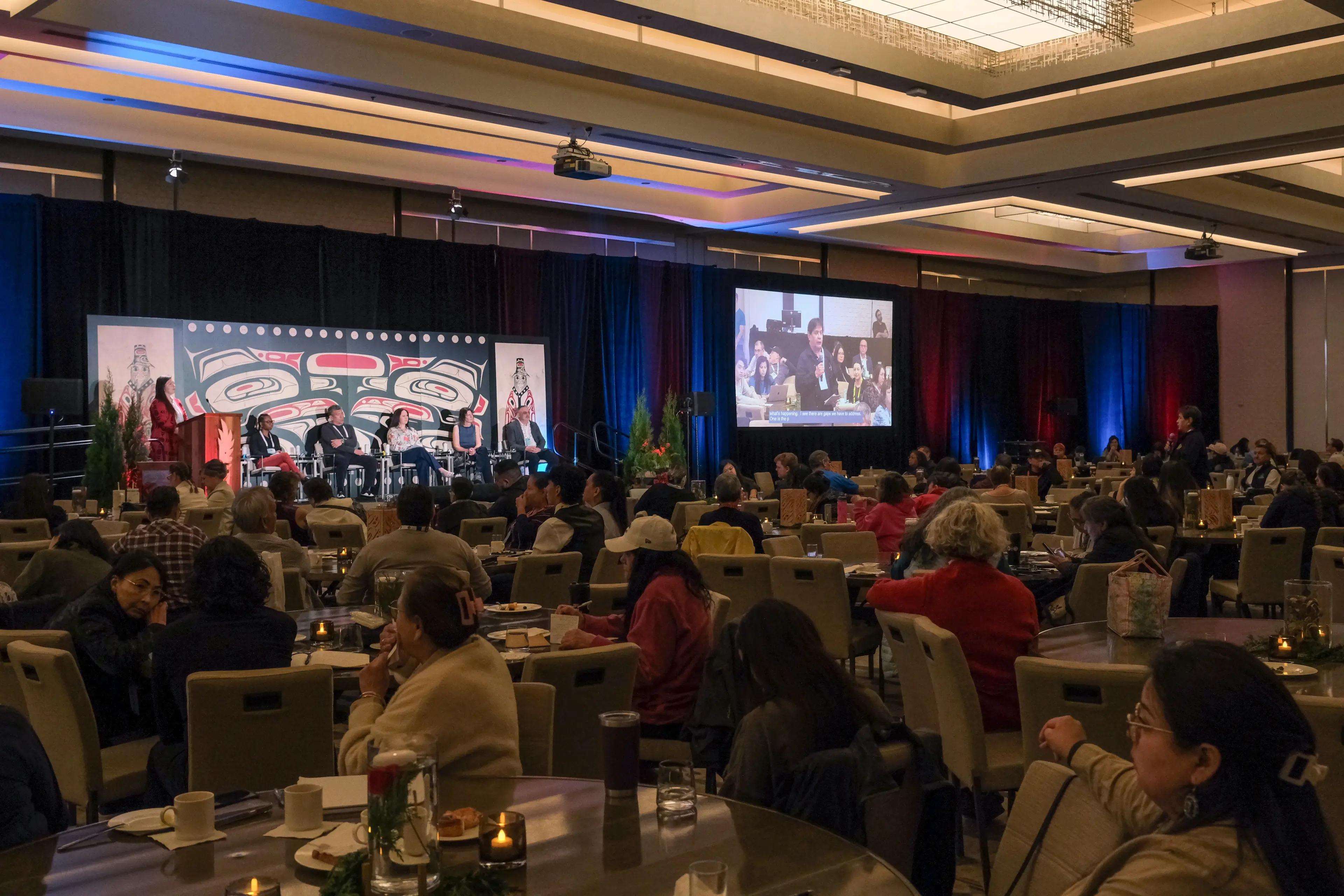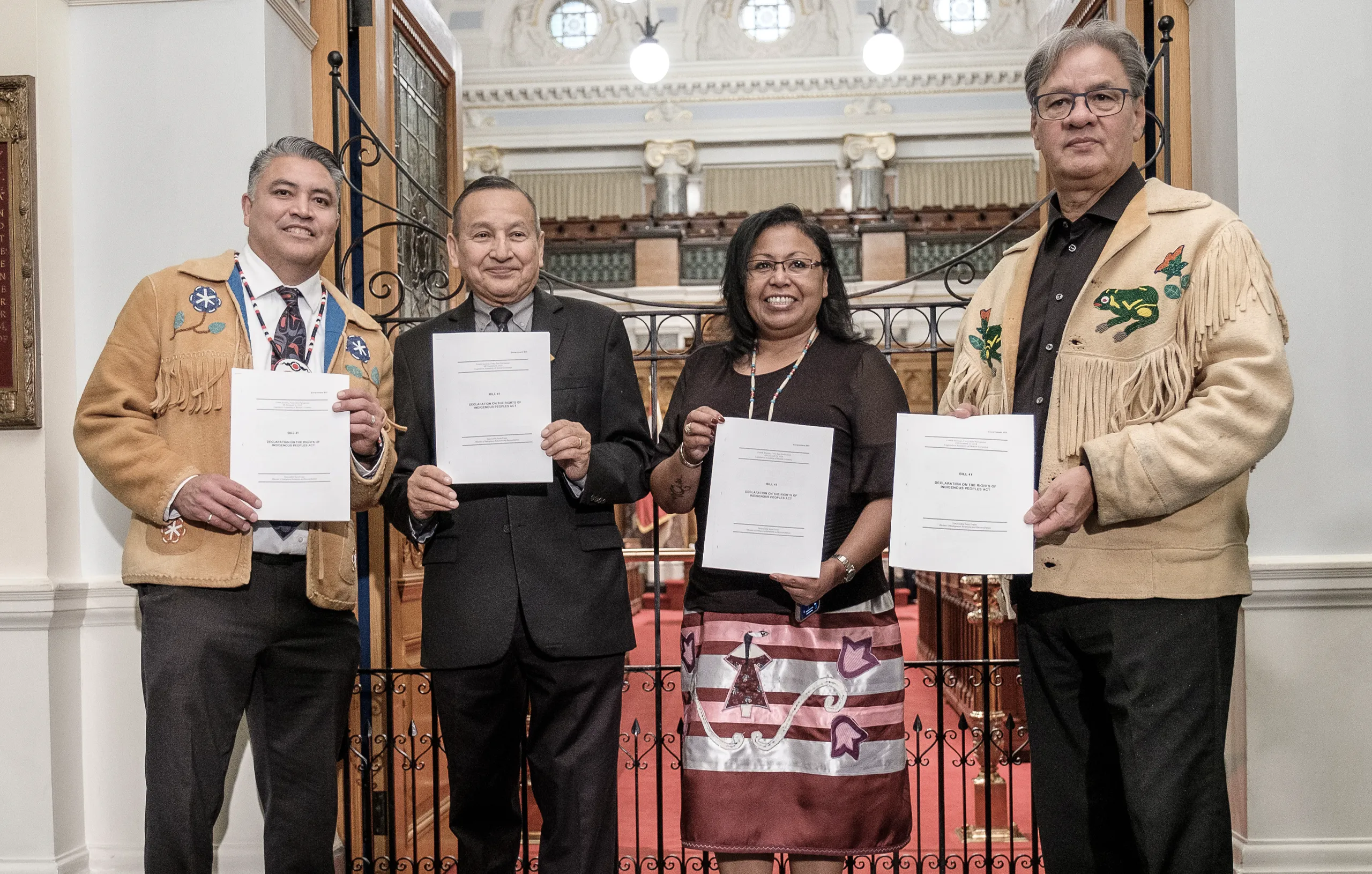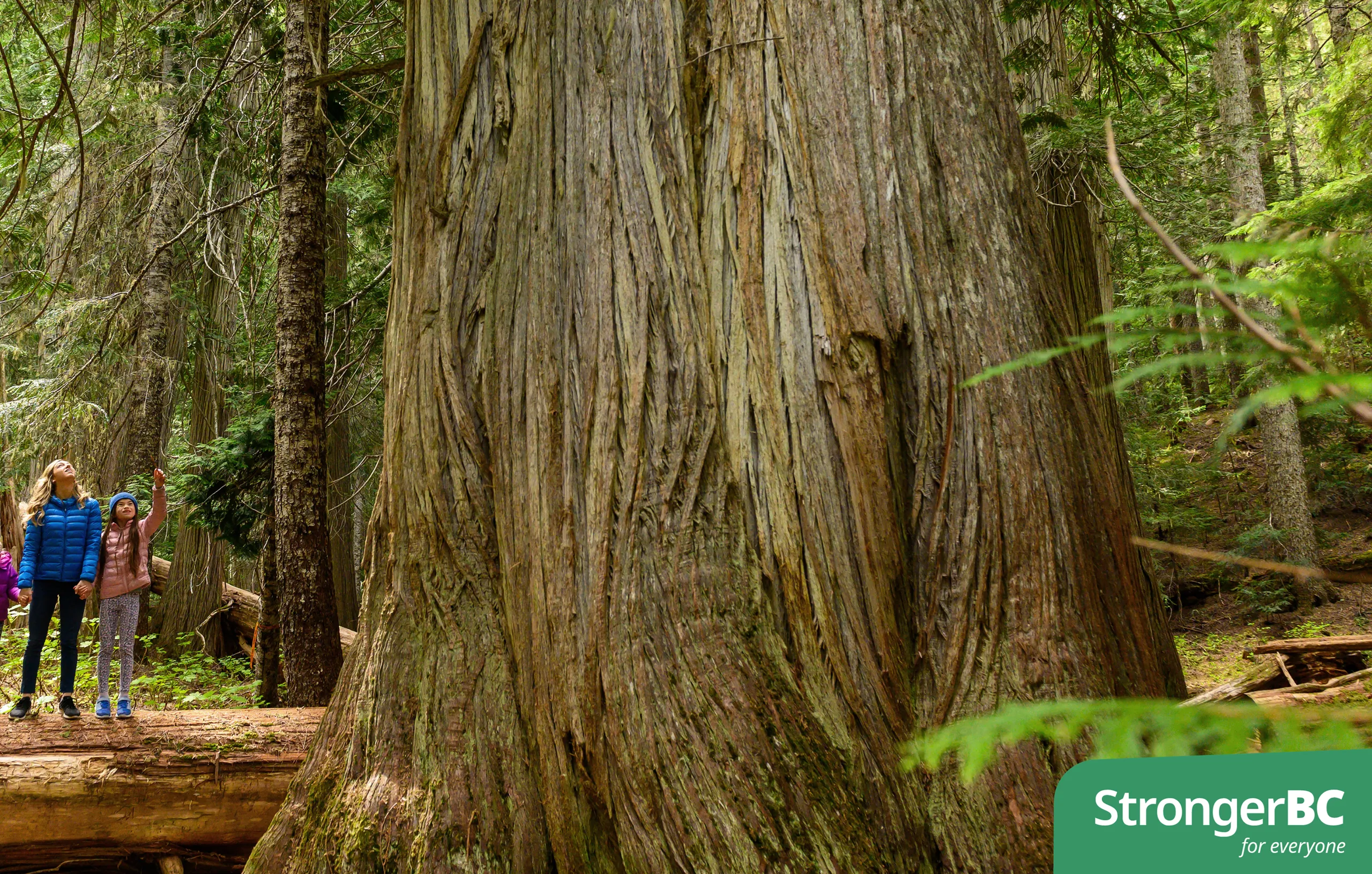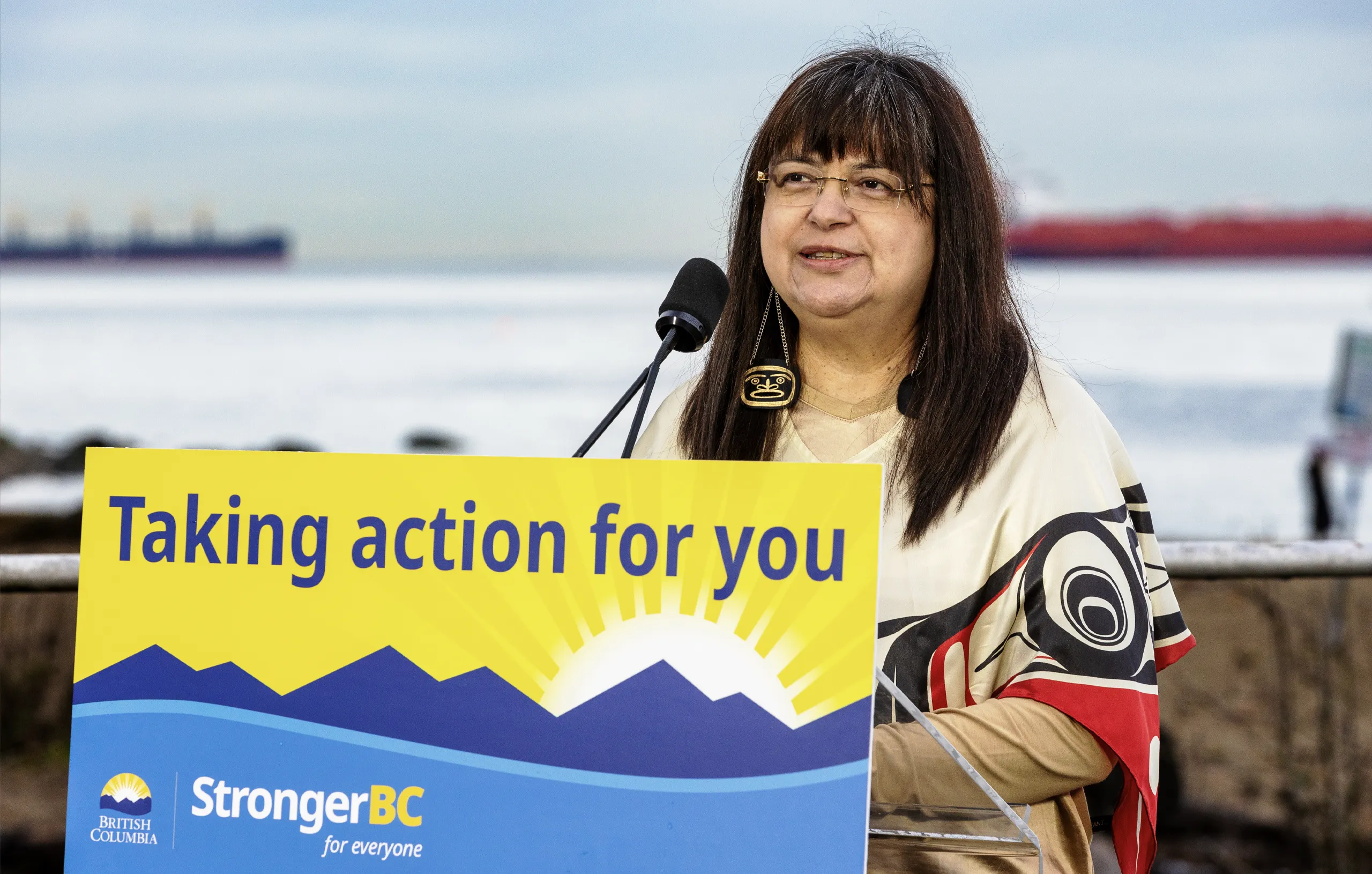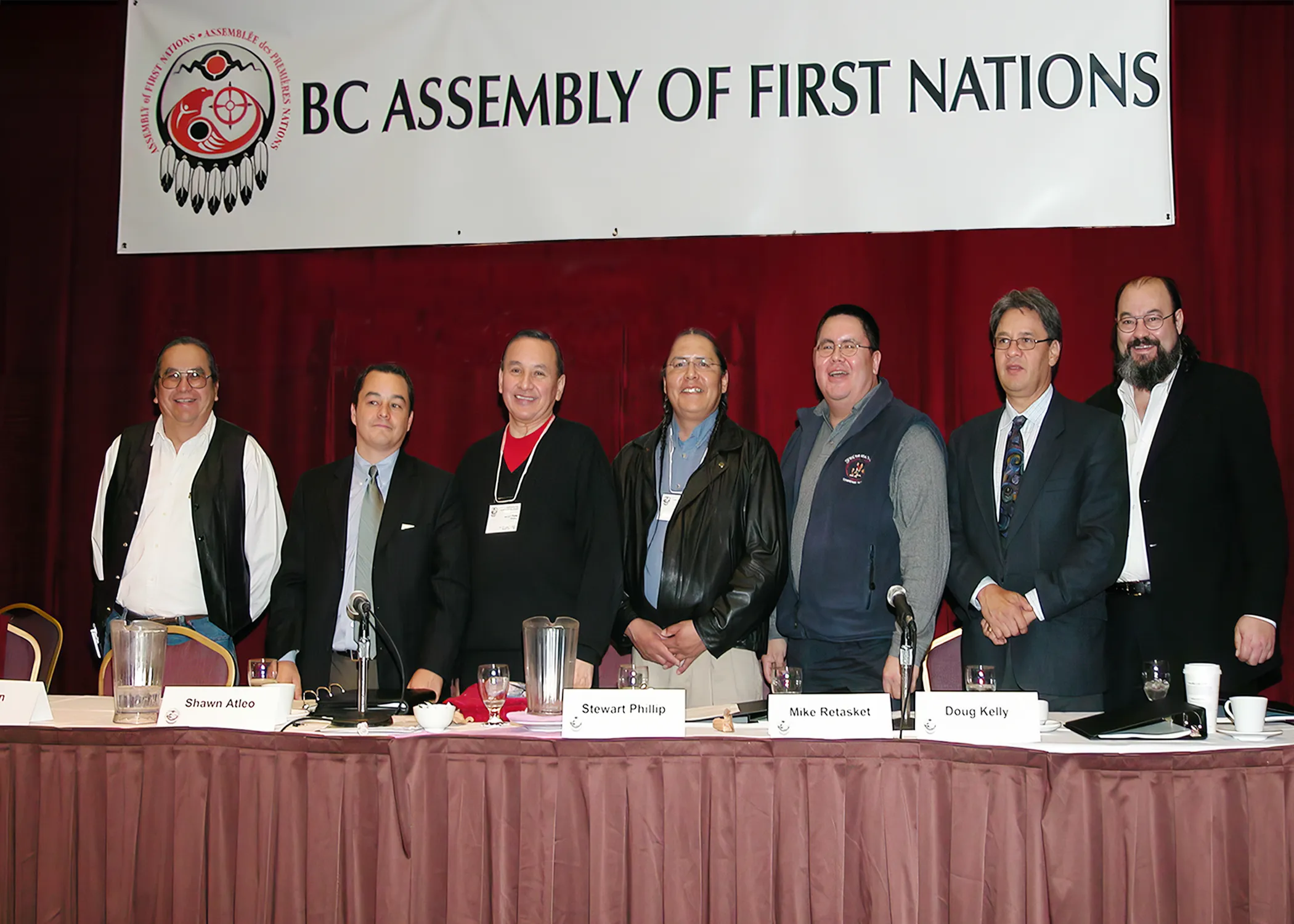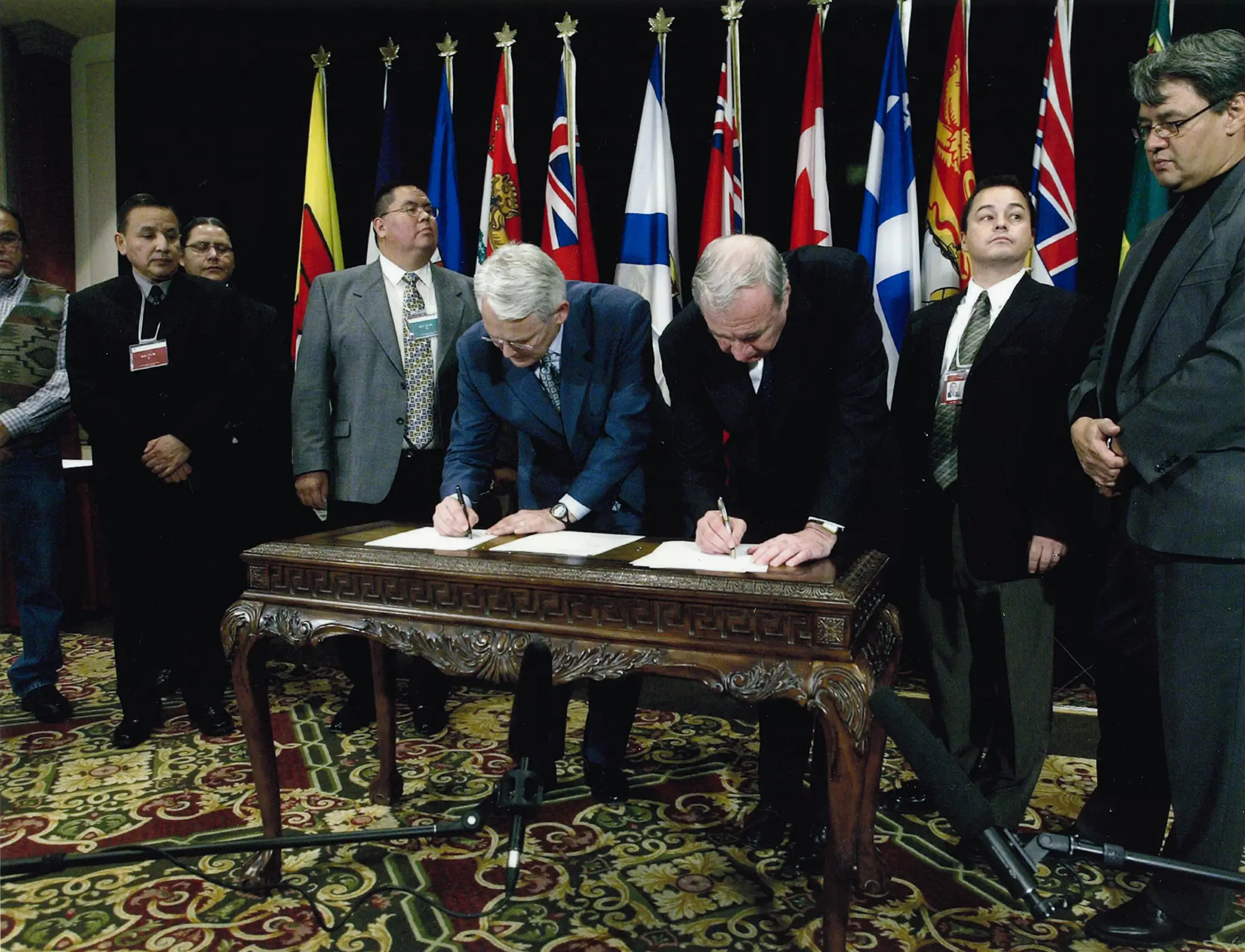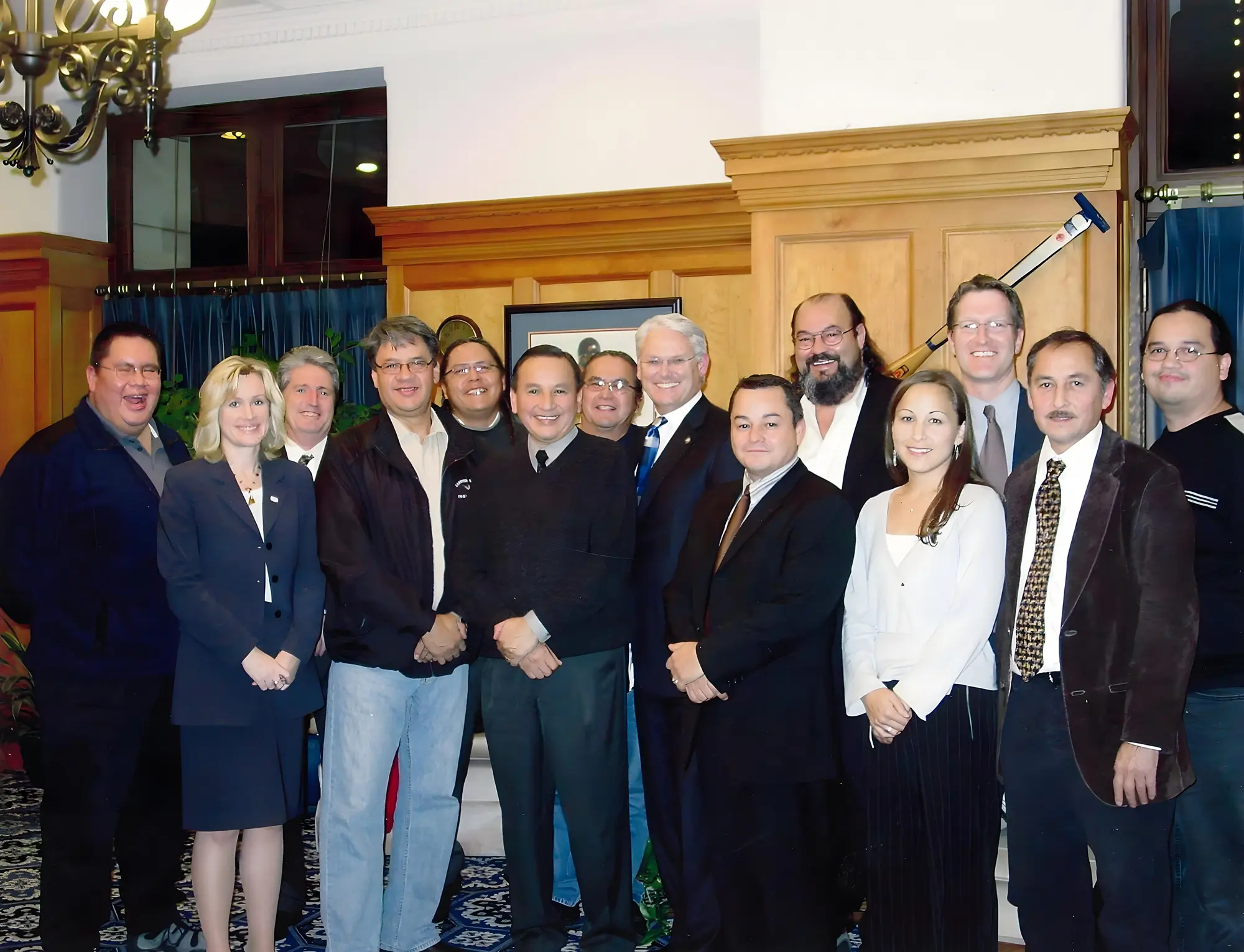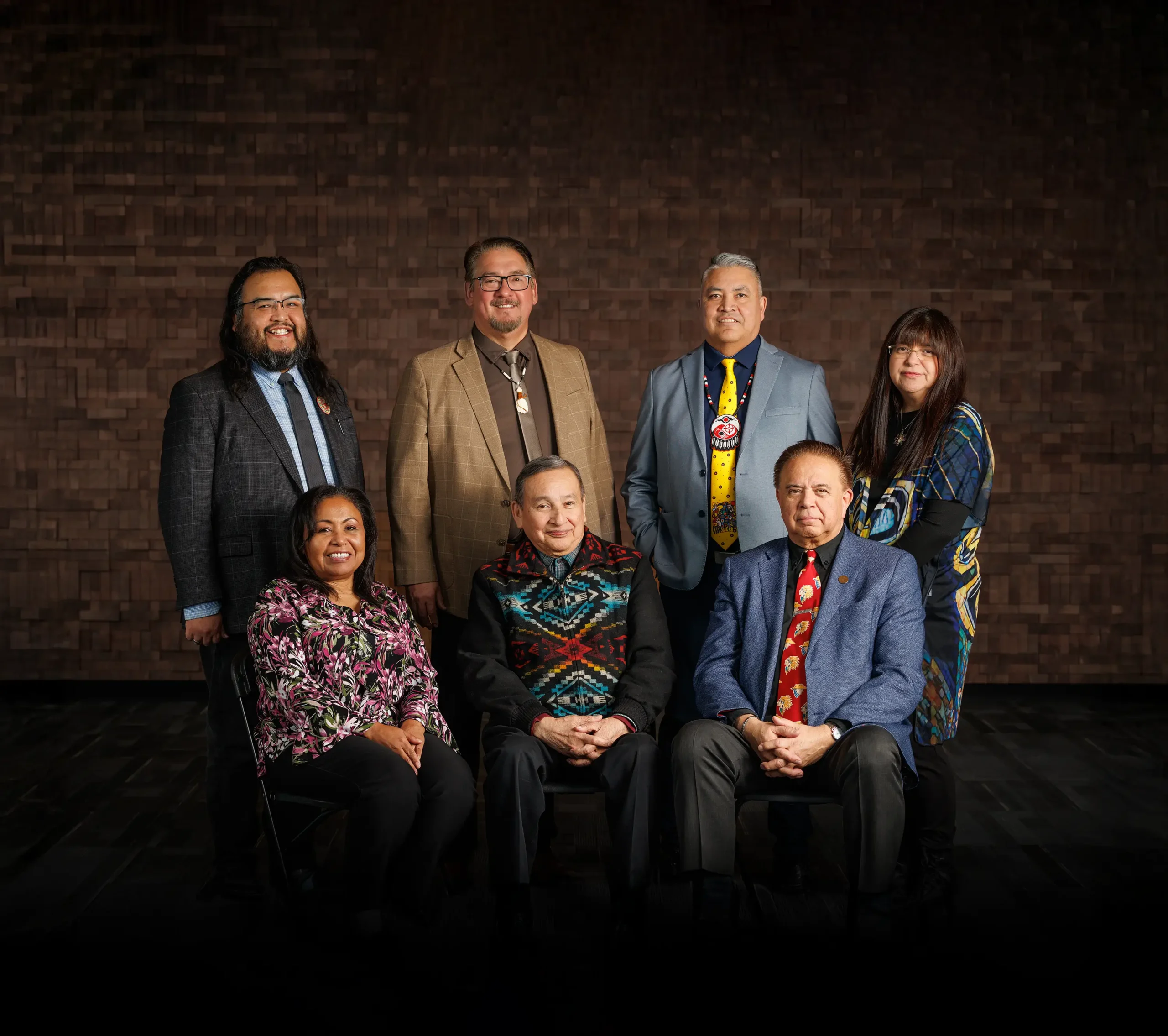Our Leadership
The FNLC is composed of seven members who are elected leaders from the British Columbia Assembly of First Nations (BCAFN), the First Nations Summit (FNS), and the Union of B.C. Indian Chiefs (UBCIC).
More specifically this includes:
- One (1) representative from the BCAFN comprising the B.C. Regional Chief;
- Three (3) representatives from the FNS comprising the elected Task Group Members;
- Three (3) representatives from the UBCIC comprising the President, Vice-President and Secretary-Treasurer, selected by the Council from amongst their members.
The members of the FNLC may be replaced as determined by each organization’s (BCAFN, FNS, UBCIC) membership, in accordance with their respective Constitution and bylaws or other processes as determined by their membership.
Our current leaders are a distinct combination of elders, residential school survivors, family members, teachers, council members, and chiefs in their own respective Nations. They are experts in law, business, education, governance, and economics.
ʔaʔsiwɬ Grand Chief Stewart Phillip
President, Union of B.C. Indian Chiefs (Since 1998)
Grand Chief Stewart Phillip, a lifelong advocate for Indigenous rights and reconciliation in British Columbia, has been recognized for his unwavering leadership and commitment to advancing Aboriginal Title, self-determination, and justice for B.C. First Nations. Serving as Chief of the Penticton Indian Band for 16 years and currently in his eighth term as President of the Union of B.C. Indian Chiefs (UBCIC), he has played a pivotal role in shaping legislation, including the Declaration on the Rights of Indigenous Peoples Act, and advocating for key issues such as land rights, violence against Indigenous women, and equitable resource-sharing agreements. His work with the First Nations Leadership Council has strengthened collaboration between Indigenous communities and governments, ensuring reconciliation remains a priority. As a founder of the Indigenous Youth Internship Program, he has also championed the empowerment of Indigenous youth and women. A principled and compassionate leader, Grand Chief Phillip embodies reconciliation through his actions, leaving a lasting legacy of justice, equality, and transformative change for future generations.
K̓áwáziɫ Chief Marilyn Slett
Secretary-Treasurer, Union of B.C. Indian Chiefs (Since 2023)
K̓áwáziɫ Marilyn Slett, a citizen of the Heiltsuk Nation, has served as Chief Councillor of the Heiltsuk Tribal Council since 2008, and is now in her fourth consecutive term. As President of the Coastal First Nations/Great Bear Initiative and a member of the Vancouver Coastal Health Board, she has been a steadfast advocate for Indigenous rights and environmental protection. Her leadership has focused on safeguarding Heiltsuk Title, Rights, and way of life, emphasizing the deep connection between Indigenous sovereignty and a healthy coastal ecosystem. Through her roles on various councils and advisory boards, she continues to champion marine conservation and Indigenous governance in British Columbia.
Maxweeum Tsimghee Terry Teegee
Regional Chief, B.C. Assembly of First Nations (Since 2018)
Terry Teegee is the elected Regional Chief of the British Columbia Assembly of First Nations, currently serving his third term. A proud member of the Takla Nation with Dakelh, Gitxsan, and Sekani ancestry, he has a background as a Registered Professional Forester and remains deeply involved in natural resource policy. His leadership was instrumental in the development and passing of the Declaration on the Rights of Indigenous Peoples Act (Declaration Act), and he holds key roles in various national and provincial initiatives, including economic development, justice and policing, fisheries, and Indigenous child welfare. Before becoming Regional Chief, he served as Tribal Chief and Vice Tribal Chief of the Carrier Sekani Tribal Council. He holds a Bachelor of Science in Natural Resources Management and a Natural Resources Technology Diploma. Known for his collaborative leadership, he advocates for Indigenous Rights, Title, and human rights. He lives with his wife, Rena Zatorski, and their two children on the Lheidli T’enneh Shelley Reserve near Prince George.
Laxele’wuts’aat Huy’wu’qw (Chief) Shana Thomas
First Nations Summit Political Executive (Since 2025)
Huy’wu’qw Shana Thomas (Laxele’wuts’aat) is the hereditary Chief of Lyackson First Nation. She has a bachelor’s degree in political science (2001) and a master’s degree in Indigenous Governance (2008), both from the University of Victoria, and is in the Final year of her Doctor of Social Science from Royal Roads University.
Shana previously served eight years as an elected council member for the Lyackson First Nation (2002-14), elected Coast Salish representative to the First Nations Health Council (2010-12, 2024-present), Treaty Commissioner to the BC Treaty Commission (2009-11). Shana started consulting in 2009, and as a consultant had the privilege of working with various First Nations and First Nations Organizations from across BC and Canada.
Huy’wu’qw Thomas is presently serving her first term as an elected member of the First Nations Summit Political Executive (2025-2028), and also serves on the First Nations Leadership Council (FNLC).
Shana is a mother of two, and grandmother of four.
Robert Phillips
First Nations Summit Political Executive (Since 2013)
Robert Phillips, a member of the Tsq’escen’ (Canim Lake Band) of the Secwepemc Nation, is a seasoned Indigenous leader with extensive experience in treaty negotiations, Aboriginal Rights & Title, and self-governance. Holding a Bachelor of Arts from the University College of the Fraser Valley, he has served as a Commissioner of the B.C. Treaty Commission, Chief Negotiator for the Northern Shuswap Tribal Council, and Justice Liaison for the Sto:lo Nation. Now in his fifth term as a member of the First Nations Summit Political Executive and the First Nations Leadership Council, he continues to advocate for Indigenous rights, treaty negotiations, and self-governance for all First Nations in British Columbia.
Hugh Braker, K.C.
First Nations Summit Political Executive (Since 2022)
Hugh Braker, a citizen of the Tseshaht First Nation on Vancouver Island, is a distinguished lawyer and Indigenous rights advocate with over 25 years of legal experience. A graduate of UBC Law School, he specialized in Indigenous rights litigation, arguing landmark cases such as Haida v. Canada and Taku v. B.C. before the Supreme Court of Canada. Appointed Queen’s Counsel (now King’s Counsel) in 2000, he has delivered numerous published papers internationally, and received the National Aboriginal Achievement Award in Law and Politics in 2007. He has also dedicated over 25 years to serving Indigenous communities, including as president of the Native Courtworker and Counselling Association of B.C. He is serving his second term as an elected member of the First Nations Summit Political Executive, he plays a key role in Aboriginal Title and Rights negotiations with British Columbia and Canada while also serving on the First Nations Leadership Council.
